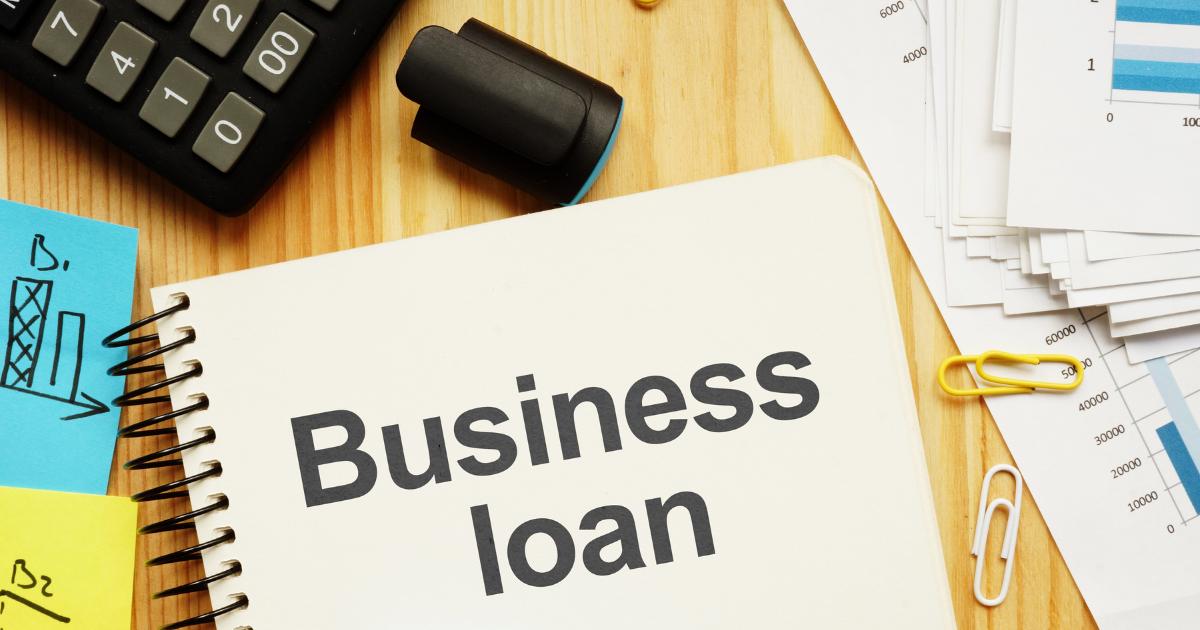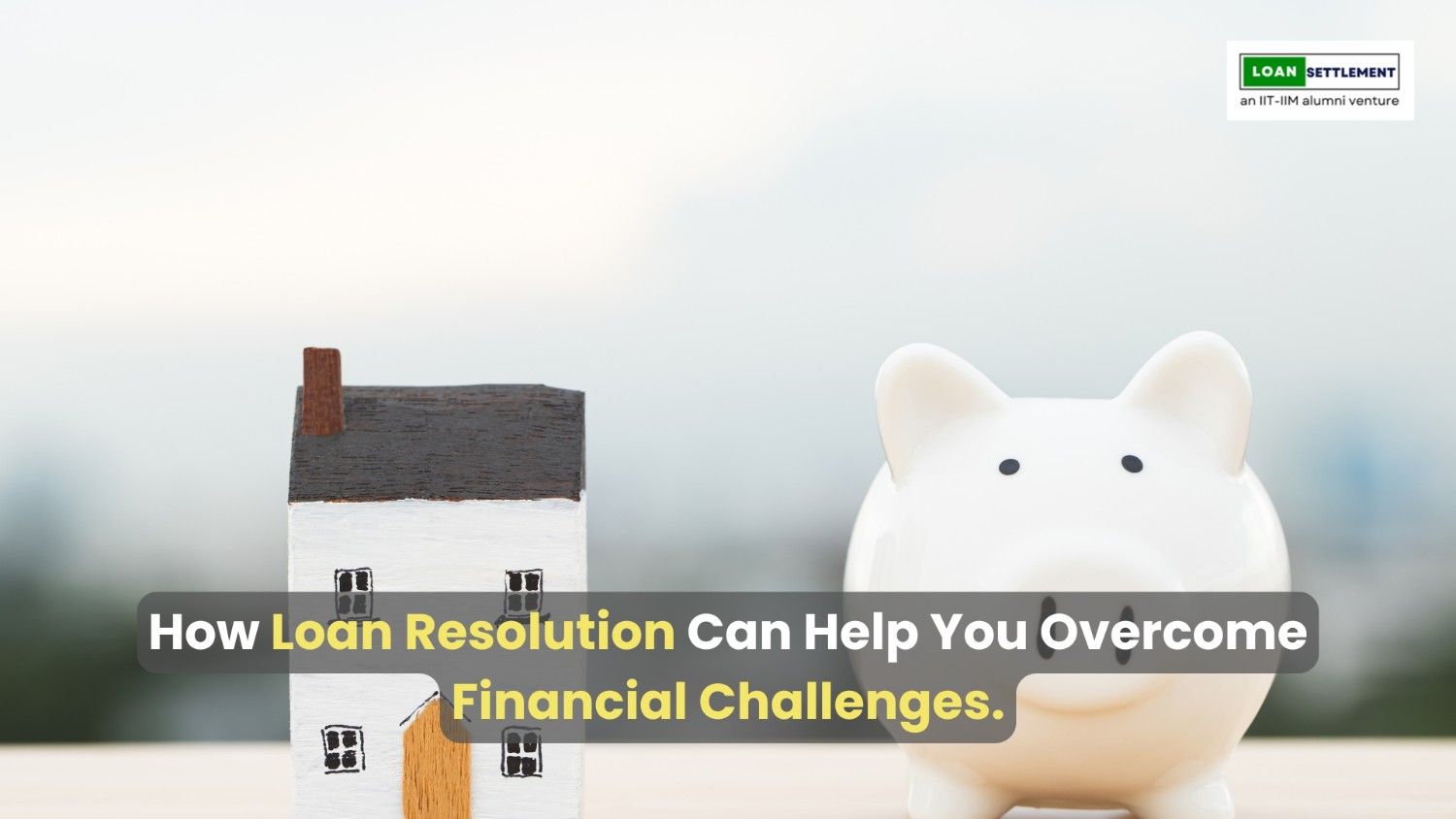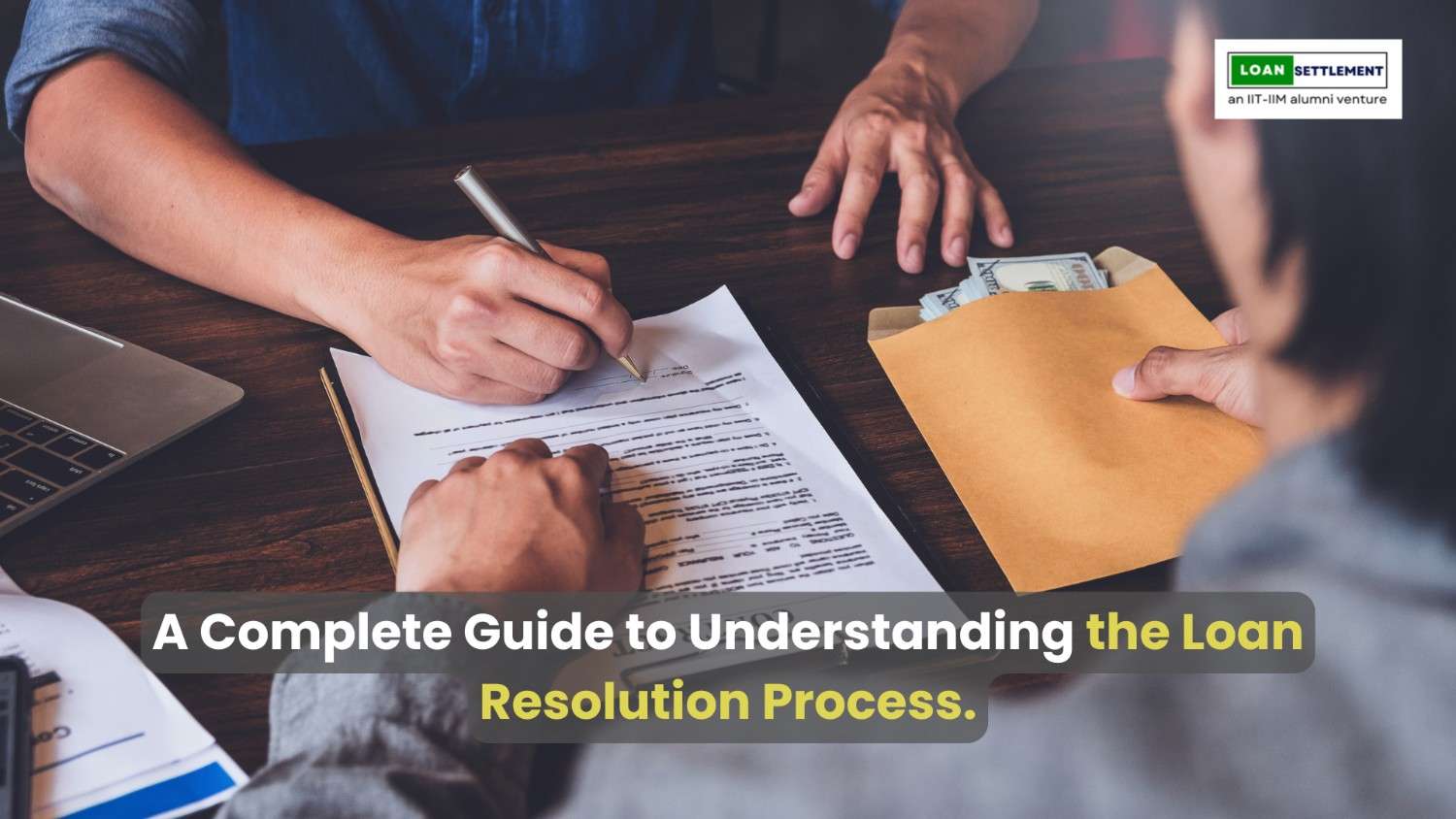· Loan Resolution · 5 min read
The Benefits of Loan Resolution: Regain Control of Your Finances
Struggling with debt? Loan resolution offers a pathway to regain control of your finances. Learn how it works, its benefits, and how to choose the right program to pave the way toward a debt-free future.

Managing debt can feel like an uphill battle, but loan resolution offers a powerful way to regain control of your finances. Whether you’re dealing with credit card debt, student loans, or medical bills, loan resolution is designed to provide a clear path toward financial recovery. This article will explore the benefits of loan resolution, why it’s essential for both your financial and mental well-being, and how it can help you pave the way toward a debt-free future.
What Is Loan Resolution?
Loan resolution refers to the process of working with lenders or third-party services to settle or restructure debt in a way that makes it more manageable. Unlike loan forgiveness, which typically cancels part or all of a loan, loan resolution often involves setting up a repayment plan or reducing the overall debt to an amount you can afford.
How Loan Resolution Works
Loan resolution usually starts with a conversation between the borrower and a financial advisor or a debt resolution service . They’ll review your financial situation and develop a strategy to help you pay down or settle your debt.
Debt Evaluation: Assessing total debt and income.
Strategy Development: Creating a manageable payment plan.
Negotiation with Creditors: Working to reduce interest rates or principal amounts.
Payment Plan Implementation: Setting up monthly payments.
Loan resolution services are often offered by private financial institutions, nonprofit organizations, and government programs.
The Importance of Loan Resolution
Debt doesn’t just affect your bank account; it can impact every aspect of your life. Left unmanaged, debt can spiral out of control, affecting your mental and emotional health. Loan resolution allows you to address these issues head-on, helping you build a better financial future and peace of mind.
Types of Loan Resolution Programs
Various loan resolution programs are available, each designed to address different types of debt:
Government Programs: Federal student loan forgiveness and resolution plans.
Nonprofit Programs: Credit counseling agencies and debt management programs.
Private Programs: For-profit companies that help negotiate debts.
Each type of program offers unique benefits depending on your debt and financial situation.
Loan Resolution vs. Debt Consolidation
While both loan resolution and debt consolidation can help you manage debt, they’re not the same. Debt consolidation combines multiple debts into a single payment, often with a lower interest rate. Loan resolution, on the other hand, focuses on negotiating with creditors to lower the amount owed or set up manageable payments.
Pros of Debt Consolidation:
Simplified payments
Lower interest rates
Pros of Loan Resolution:
Reduced total debt
Potential for faster debt payoff
When Should You Consider Loan Resolution?
If you’re struggling to make minimum payments, receiving frequent collection calls, or constantly worrying about debt, it might be time to consider loan resolution. Other signs include a rising debt-to-income ratio, maxed-out credit cards, or a sudden life event that impacted your finances.
Benefits of Loan Resolution
Loan resolution offers numerous benefits:
Regain Financial Control: Get back on track with payments and work toward debt freedom.
Improve Credit Over Time: Successfully managing debt resolution can eventually lead to a higher credit score.
Reduce Financial Stress: Knowing you have a plan can ease mental and emotional strain.
Loan Resolution and Credit Scores
Many people worry about how loan resolution might impact their credit score. While settling or restructuring debt may initially lower your score, successfully completing a resolution plan can help improve it over time. Consistently making payments and reducing overall debt can gradually bring your score up.
How to Choose the Right Loan Resolution Program
Finding the right loan resolution program depends on your debt type, total debt, and current financial situation. Here’s what to consider:
Reputation: Look for reviews and testimonials.
Cost: Understand the fees and what’s included.
Credentials: Ensure the service provider is accredited.
Customer Support: Reliable support is essential for staying on track.
What to Expect During the Loan Resolution Process
When you start a loan resolution program, expect a step-by-step process:
Financial Assessment: Gather information about your income, expenses, and debts.
Customized Plan: Based on your assessment, a plan will be created.
Negotiation with Creditors: The resolution company will work on your behalf to reduce your total debt.
Implementation: You’ll start making manageable payments based on the agreed-upon terms.
Common Challenges in Loan Resolution
While loan resolution can be incredibly beneficial, it can also be challenging. Potential challenges include:
High Fees: Some programs may come with costs.
Commitment: Completing a resolution plan requires dedication.
Impact on Credit Score: Although temporary, resolution can impact credit.
Loan Resolution Success Stories
Consider Sarah, who was drowning in medical debt. She enrolled in a loan resolution program that negotiated a reduced balance and set up an affordable payment plan. Over three years, she paid off her debt and improved her credit. Real-life stories like Sarah’s show that loan resolution can be a viable path to financial recovery.
How to Stay Debt-Free After Loan Resolution
Once you’ve completed a loan resolution program, keeping your finances on track is crucial. Here are some tips:
Budget Wisely: Create a budget and stick to it.
Build an Emergency Fund: Prepare for unexpected expenses.
Avoid New Debt: Only take on debt if absolutely necessary.
Conclusion
Loan resolution provides a pathway to regaining financial control, reducing stress, and achieving a brighter financial future. While it can take time and commitment, the benefits far outweigh the challenges. If you’re ready to tackle your debt, consider reaching out to a reputable loan resolution service.
FAQs
What is the difference between loan resolution and loan forgiveness? Loan resolution involves restructuring or settling debt, while loan forgiveness typically cancels part or all of a loan.
How long does the loan resolution process take? The time varies but usually ranges from a few months to several years, depending on the debt amount.
Will loan resolution impact my ability to get future loans? It might temporarily lower your credit score, but successful completion can improve your creditworthiness over time.
Can I resolve loans on my own, or do I need a service? While possible to resolve loans on your own, a professional service may have more negotiating power and expertise.
Is loan resolution worth it for small debts? It can be, especially if high interest rates are making payments unmanageable.



